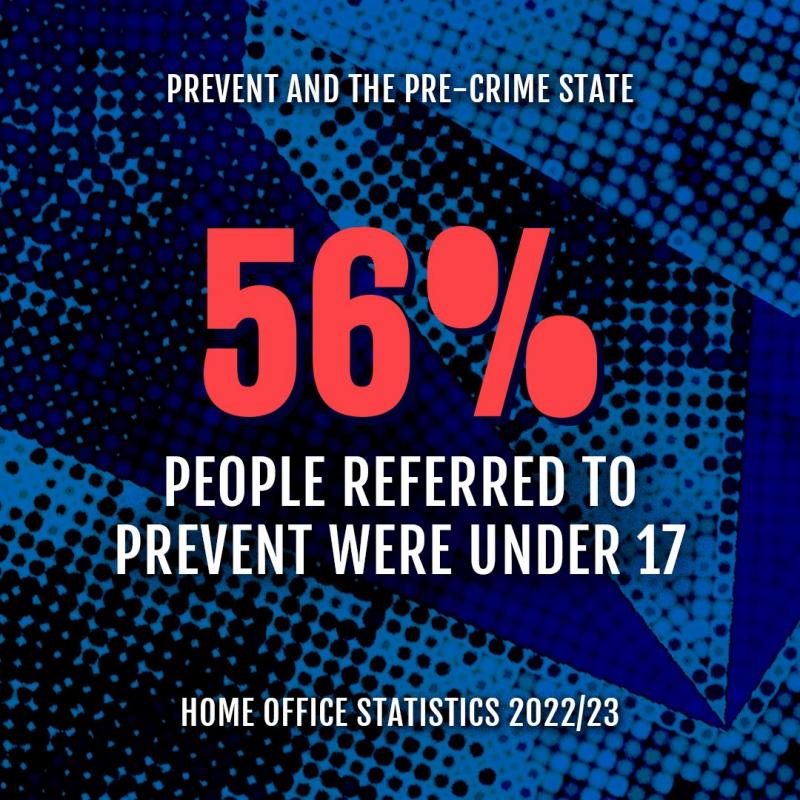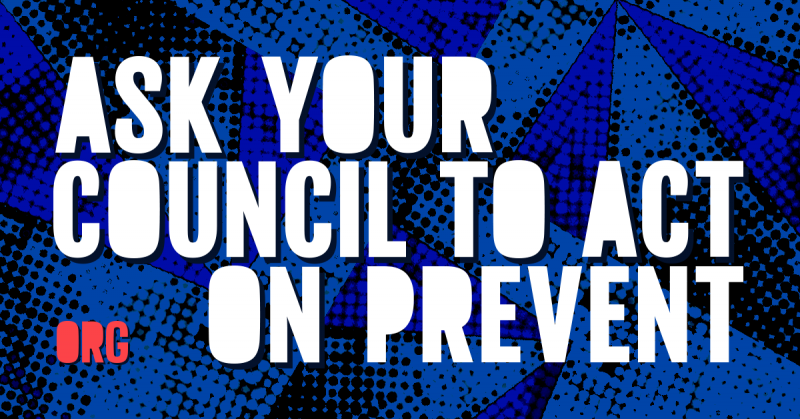Thousands of Prevent referrals are made each year ostensibly to “support people susceptible to radicalisation”. The overwhelmingly majority do not meet the threshold for a Channel intervention (a multi-agency deradicalisation programme). Despite this, the data of Prevent referees is retained and shared across multiple databases, with potentially harmful outcomes.
Prevent operates in the pre-crime space, in which no offence has taken place, but rather people are surveilled and viewed as suspicious. It operates by extracting data and policing information that further securitises the spaces of marginalised and vulnerable communities.
Harms for children
There are particular harms for children, who make up the majority of Prevent referrals. Even if they have not been previously known to social services, a Prevent referral is shared with children’s services and this information is kept for 25 years after the child’s 18th birthday. It would therefore still be available when that child is an adult and has children of their own, thus impacting any future assessment concerning their own children and any children’s services interventions.

ORG's report includes case studies of children who have experienced harms as a result of being referred to Prevent. These include a 16-year-old who when trying to enroll at a Sixth Form College was instead questioned about incidents that had led to a Prevent referral at his secondary school more than two years prior. His place at the school was then withdrawn on the basis of “new information” that the Sixth Form College had been given by his secondary school.
We believe Local authorities, police departments and individual institutions subject to the Prevent duty should ensure maximum transparency around referrals, data processing and data sharing practices, including the systems used and in as clear detail as possible.
That's why we are asking people to contact their Councillor to raise concerns over how their local authority is processing Prevent data. We want Councillors to ensure that this report receives proper consideration and scrutiny. That might mean placing it onto the agenda of an audit committee that considers data processing, a Scrutiny Panel meeting, or onto the agenda of Community Safety Partnerships.


